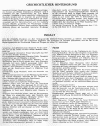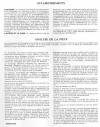

>>>> Please click on text, then again to enlarge for better reading <<<<
LUCKY SIBIYA
(1942-1999)
The UMABATHA Portfolio of 15 woodcuts
English
BACKGROUND STORY
The witchcraft, intrigues, plotting, assassinations in William Shakespeare’s MACBETH are, in UMABATHA, cleverly allied to those that occurred in the development of the Zulu nation. UMABATHA is not a Zulu version of MACBETH but portrays historical Zulu events woven around Shakespeare’s plot. Clothed in Zulu dress and using mystic language, tribal dancing is incorporated as was done in traditional Zulu custom. Masks, dances of supplication, exorcism, defiance and scorn build the story of tradition, magic and ritual.
Mr Welcome Msomi, a highly talented Zulu playwright was encouraged in his work, and ultimately to international acclaim, by Professor Elizabeth Sneddon, former Head of the Department of Speech and Drama at the University of Natal. UMABATHA was first produced in the Natal University’s open-air theatre in 1970. There have since been extremely successful renderings abroad.
SYNOPSIS
In order to follow UMABATHA in the light of MACBETH, Shakespeare’s characters are bracketed behind the Zulu names. The location is Zululand (Scotland); the time period is early 19th century during the reign of the Zulu kings Shaka and Dingane.
Sangomas, Zulu witchdoctors (witches), prepare to meet the hero Mabatha (Macbeth).
King Dangane’s (Duncan’s) warriors fight traitor Khondo’s (Cawdor’s) forces. A wounded warrior praises Mabatha’s prowess. Dangane sends messengers with words of praise to Mabatha.
Sangomas confront Mabatha with predictions that he is to become King. Bhangane (Banquo) demands to know his future too but is told only his sons will be kings.
Mabatha and Bhangane arrive at Dangane’s kraal where the king announces a visit to Mabatha’s kraal. Kamandonsela (Lady Macbeth) receives messages from Mabatha through the drums. He tells of the sangomas’ (witches) predictions.
On Mabatha’s arrival she tells him Dangane must die. Mabatha agrees reluctantly. Dangane arrives at Mabatha’s kraal. Warriors, maidens and dancers perform for Dangane. Mabatha is undecided about the assassination but his wife convinces him that the guards are to be blamed for the king’s death. On that score Mabatha agrees to kill Dangane.
Bhangane tells Mabatha that the sangomas’ (witches) predictions have all come true. Mabatha shows little interest. Bhangane leaves and Mabatha prepares to kill Dangane.
Kamandonsela fears their plot may be uncovered. Mabatha comes back with bloodstained spear. She grabs it and goes back to smear the drunken guards. Voices are heard outside, Mabatha is confused.
Mabatha’s drunk attendant enters. Princes are grieved by the king’s death. The whole nation mourns. A special funeral dance is performed. Makiwane (Malcolm) escapes to Swaziland and Donebane (Donebain) to Moçambique for fear of being accused of murder. Bhangane expresses fear of the sangomas’ prophecy.
Crowning of Mabatha who is dressed in the leopard skin of royalty. Mabatha tells Bhangane not to fail to attend the feast. Bhangane exits knowing Mabatha is king. Mabatha plots Bhangane’s death with murderers. Kamandonsela gives him courage. Death of Bhangane.
Feasting at Mabatha’s kraal. Bhangane’s ghost appears and vanishes twice. Mabatha is scared stiff as the witches have prophesied Bhangane’s sons will inherit power. Kamandonsela announces end of celebrations and guests disperse in confusion. Mabatha vows to destroy Mafudu’s (Macduff’s) kraal; he was absent from the feast.
Mabatha meets the sangomas around the pot. They show him the ghosts of Bhangane and warn him “Beware Mafudu”, but that he, Mabatha need never fear any man born under natural conditions.
Mafudu’s kraal is destroyed. Mafudu and Makiwane in Swaziland. Mafudu receives the news that his kraal has been destroyed. He vows to kill Mabatha and he seeks help from the Swazi king. Kamandonsela’s tortured mind is revealed through her madness. The famous sleep walking scene occurs. Mabatha dresses for battle.
Prince Makiwane’s warriors and the Swazi army prepare to attach Mabatha’s impis.
Women and men mourn the death of Kamandonsela. Mabatha summons his warriors. During fighting Mabatha kills Dangane’s son.
In the end Mabatha is killed by Mafudu who has just told Mabatha that his birth was not natural, but by Cesarean. This fulfilled the witches’ prophesy to Mabatha. Makiwane, the rightful heir, is installed king. Mafudu promises peace to Zululand and in a dramatic gesture strikes the spear of murder and victory into the ground. Mabatha’s body is left to rot and decay in the veld as all warriors exit singing a victory song.
Extract from the catalogue "UMABATHA" which appeared on the occasion of a performance by The Zulu Theatre Company at the Colosseum, Johannesburg, on 8th October, 1973, presented by the SA. Steel Industry to I.I.S.I. 7 delegates
.
| French | |
 |
 |
|
>>>> Please click on text, then again to enlarge for better reading <<<< |
|
This page last updated 6th January, 2015